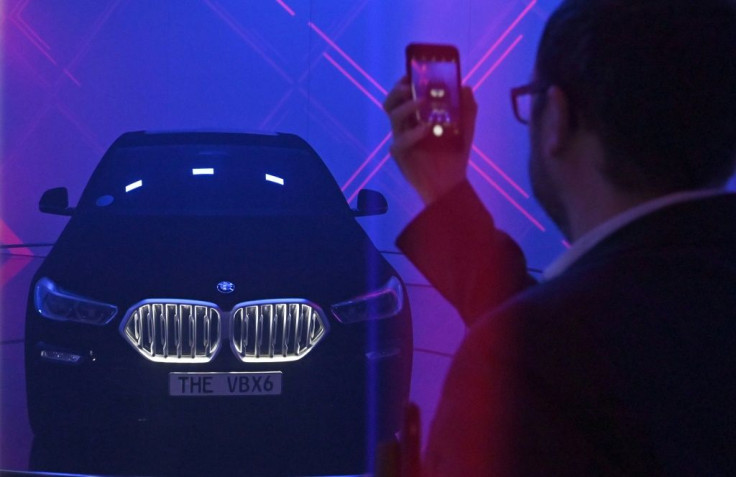Merkel says can't shield car industry from 'revolutions'

German Chancellor Angela Merkel vowed Thursday to support the vital car industry through "revolutions" in climate protection and digitalisation, but warned firms must themselves develop new technologies and win back lost trust among the public.
"I believe it would be a mistake to think we could come up with state subsidy programmes that will match the innovations of the coming 10 years" in reducing CO2 output, Merkel said as she opened the biennial IAA car show in Frankfurt.
"You still never know quite how revolutions are going to turn out, and that's why we must organise them in as evolutionary a way as possible," she added.
The trade fair has opened under a cloud this year, under pressure from the lingering impact of Volkswagen's massive "dieselgate" pollution scandal, weaker international demand and a growing anti-car environmental movement.
As Merkel addressed the fair, a small group of demonstrators outside urged "climate protection instead of SUVs!" on banners and placards, foreshadowing a larger protest scheduled for Saturday.
Even as it unveils a flurry of new electric models, the mighty German auto industry has been on the defensive in recent weeks and months over safety and the environment.
Critics say the sector is failing to reduce carbon emissions despite a massive push for new electric vehicles.
Massive legal actions are still pending over Volkswagen's admission in 2015 that it fooled regulatory tests on 11 million vehicles worldwide.
Meanwhile broadcaster SWR reported Thursday the giant may have built similar "defeat device" software into its newer motors.
Politics and industry squeezed
VW did not respond immediately to AFP's request for comment, but the firm had earlier told SWR its EA 288 engines "contain no cycle recognition" to adjust performance under test conditions.
"The question of illegal defeat devices still weighs (on the car industry), and has led fundamentally to a loss of trust in the middle of a period of gigantic change," Merkel warned.
She has had to battle allegations of cosiness with the auto industry since the dieselgate scandal broke, and has come especially under pressure as the ecologist Greens party snaps at her centre-right CDU's heels in the polls.
Ministers plan to present a new climate package on September 20.
"Very fundamental decisions" are coming, Merkel said, repeating her Wednesday message to lawmakers that "putting a price on CO2 is the right way to make clear that all our innovation must aim at emitting less".
Carmakers already face pressure on their wallets from incoming EU regulations.
From next year, vehicles must on average emit no more than 95 grammes of CO2 per kilometre -- on pain of a fine of 95 euros ($105) for each gramme over the limit per car sold.
That has prompted manufacturers to unveil a string of new "zero emission" electric vehicles, including Volkswagen's "ID.3" at the IAA.
Industry expert Stefan Bratzel nevertheless warned that "the success of e-mobility as it ramps up in the market has a lot of pre-conditions, and cannot only be achieved by manufacturers" -- highlighting the role of governments.
"Electric mobility will certainly be the alternative drive that we build out nationwide, along with charging infrastructure," Merkel assured IAA attendees, recalling also that Berlin is backing the creation of European battery manufacturers.
But she added that alternative technologies like hydrogen power must not be ruled out, promising a strategy for the fuel later this year.
SUV debate
There was no word in the chancellor's 20-minute speech on the car topic that has dominated media this week: the deaths of four pedestrians, including a three-year-old boy, when an SUV mounted the pavement on a busy Berlin street Friday.
With demand for the bulky, high-margin vehicles growing, carmakers see them as a way to fund the costly investments needed to develop new technologies.
But the deadly accident shows "tank-like cars like this don't belong in the city," said Greens mayor Stephan von Dassel after the crash in his Berlin-Mitte district.
SUVs are "a monstrous status symbol for some, and a monstrous image of the enemy for others," commented Die Welt newspaper.
© Copyright AFP {{Year}}. All rights reserved.




















